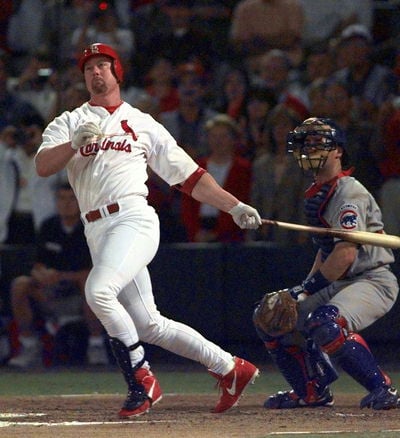Sign up to Get FREE Steroids, SARMS, Peptides eBooks
NFL Players are using steroids and getting away with it!
There’s no arguing that the NFL and Major League Baseball are different. But you’ll be amazed by the way that people are cracking down on baseball players for using performance enhancing drugs while leaving football players to do whatever they want.
The differences between the National Football League and Major League Baseball have become numerous over the last couple of decades. And most of these differences heavily favor the NFL. Prima di tutto, the National Football League has become the clear and away number one sport in America both financially and in terms of popularity while MLB has sunk to a distant third behind the National Basketball Association.
Il prossimo, the NFL has earned the ability to push its product nationally while our nation’s former pastime has to resort to pushing its product locally. In altre parole, football rules national television because it plays one day a week for 17 weeks a year so people actually care about it while baseball wears itself and its fans out with marathon seasons that leave its only TV options with the local markets.
But these differences take a huge backseat to a new difference that has arisen just recently and this one favors the National Football League so much that it’s ridiculous. Fondamentalmente, Major League Baseball has been put under a microscope over the last few years for its steroid problems while the NFL has remarkably managed to slide past the public scrutiny seeing only page 2 newspaper headlines for its juicing offenses. And to find evidence of this blatant trend, all you have to do is visit one state to get a good idea of what is happening.
The beautiful state of California has been anything but for San Francisco Giants slugger Barry Bonds the past four years. The grief that he’s suffered during his run-ins with federal investigators over the BALCO scandal have made his numerous injuries over that same period seem almost insignificant. Sparing you anymore coverage of the Barry Bonds’ steroid saga that has been beaten to death, I’ll just jump a few miles east towards a lightly-regarded story that developed in the NFL last year.
 The San Diego Chargers just came off of one of their best years in franchise history with a 14-3 overall record and numerous Pro Bowl nominations and post-season awards for its players as a reminder. And the focal point of the defense on this excellent team was a tough, gritty linebacker by the name of Shawne Merriman.
The San Diego Chargers just came off of one of their best years in franchise history with a 14-3 overall record and numerous Pro Bowl nominations and post-season awards for its players as a reminder. And the focal point of the defense on this excellent team was a tough, gritty linebacker by the name of Shawne Merriman.
Merriman had an incredible year after leading the league in quarterback sacks with 17 en route to finishing third in the Defensive Player of the Year voting. He will also be headed for a free trip to Hawaii as a starter at Outside Linebacker in the Pro Bowl this summer thanks to his exceptional efforts on the gridiron. And many people have been talking in praise of his breakout season for the Chargers.
But far less people have been talking about the fact that he failed a steroid test for nandrolone use and had to serve a four game suspension in the middle of the season as well. The suspension was really almost forgotten when Merriman came back and picked up right where he left off with a 2 sack game against Buffalo. It was as if his great game had erased all memory of what had occurred just a few weeks earlier.
Nel frattempo, the hero of the MLB 98’ home run fest season which saw three sluggers go over the 60 home run mark in what might be baseball’s most exciting year ever, was being further shamed during the Baseball Hall of Fame voting.  Mark McGwire, affectionately known as Big-Mac during his career, received votes on only 23.5% of the Hall voting ballots.
Mark McGwire, affectionately known as Big-Mac during his career, received votes on only 23.5% of the Hall voting ballots.
This was a far cry from the 75% that he needed to enter the pinnacle of baseball greatness. His 583 funzionamenti domestici, 1414 runs batted in, e .588 slugging percentage weren’t enough to even get him close to getting in. For any of those wondering, un 500+ home run career is typically all a player needs to enter the Hall of Fame.
All of this for a guy who only took Androstenedione (Andro) during his record breaking season. The ridiculous thing is that Andro wasn’t even banned by baseball or the FDA at the time that McGwire was using it. It was even being sold as an over-the-counter supplement to everyday people during this period. So if McGwire wasn’t even using a banned steroid why do people even doubt his incredible baseball accomplishments?
Maybe it’s because he refused to rat out his fellow baseball players who were juicing when he told Congress: "Asking me or any other player to answer questions about who took steroids in front of television cameras will not solve the problem. If a player answers 'No,' he simply will not be believed; if he answers 'Yes,' he risks public scorn and endless government investigations."
So after all of Congress’ refuted attempts to bring McGwire down, they only had his admittance to using Androstenedione and his refusal to tell on others as evidence that he was involved in any sort of controversy. So why does this merit him not being able to earn a deserving Hall of Fame nomination years later while, allo stesso tempo, Shawne Merriman of the Chargers is going to the Pro Bowl in the same season that he was also suspended for using steroids?
Some believe that this has to do with the NFL’s development of an anti-steroid policy years before baseball had even began thinking about doing so. The National Football League has had a drug policy since 1990. Professional baseball, d'altra parte, didn’t implement drug testing until a few years ago when it started taking heat for players using roids.
Andando anche oltre, the NFL has not only had their policy in effect, they’ve also gained some positive media attention for the efforts they have made to make the program even better. As NFL Vice President of Public Relations Greg Aiello said, “We started doing this a long time ago and have continued to review and modify the policy and strengthen it on a yearly basis. That’s why we receive the credit.”
Others seem to think that the NFL escapes a large amount of public scorn do to the way its public relations people have heavily marketed the positives of their drug policy. As famed San Francisco Chronicle reporter and co-author of “Game of Shadows” Mark Fainaru-Wada said, “There's a large P.R. component to this. Football has stayed largely under the radar while baseball has come under attack in a much larger way. I'm not saying it's wrong for baseball to come under attack. I think the question is whether football's gotten the attention it's deserved.”
Fainaru-Wada’s comments do raise a good question about the lack of attention that has been directed at a possible steroid problem in the NFL. Veteran wide receiver Keenan McCardell, who also is on the NFL Players Association Executive Committee commented, “You know it goes on, but you don't know who it is, so you can't point the finger at anybody. It's something that every league can do better and every player can do better, but it's not that we need to mention it to the media.”
McCardell is not the only player who’s spoken about the matter in recent years as former San Francisco all-pro linemen Dana Stubblefield estimated that about 30% of the NFL’s players were using Human Growth Hormone. Washington Redskins lineman Jon Jansen said that about 20% of all players were using some sort of steroid. I suspect that these estimates are in fact quite conservative.
però, despite the strong belief that a large number of professional football players are on some kind of illegal performance enhancer, it remains an afterthought compared to baseball. People like retired Oakland Raider Bill Romanowski and Carolina Panther standout Julius Peppers are a couple of examples of players have been busted for illegal performance enhancing substances yet avoided notoriety. Former NFL quarterback Jim Miller even joked with the media after he turned up a positive test for roids.
 One person that’s not joking about the subject though is baseball’s Mike Sweeney. The Kansas City Royals first baseman is actually saddened by the double standard that exists as he said, “It breaks my heart that a guy like McGwire has been persecuted for something he never tested positive for or never admitted to, yet there are guys playing on Sundays in the NFL that tested positive and people just seem to cover that up.”
One person that’s not joking about the subject though is baseball’s Mike Sweeney. The Kansas City Royals first baseman is actually saddened by the double standard that exists as he said, “It breaks my heart that a guy like McGwire has been persecuted for something he never tested positive for or never admitted to, yet there are guys playing on Sundays in the NFL that tested positive and people just seem to cover that up.”
Sweeney definitely has a great point concerning the way that baseball gets treated totally different by the media when it comes to the issue of substance abuse. And it almost seems like the NFL gets preferential treatment when it comes to the matter. But we all know that the heat hasn’t come upon baseball just because football has become more popular.
A lot of the reasoning for the steroid double standard lies in the nature of the two sports. Professional football relies on its physical nature where danger exists at any second due to the sport’s hard-hitting, violent collisions involving colossal-sized men. D'altra parte, pro baseball doesn’t pack nearly as much action but instead survives due to its rich history where players and teams of the past are often legitimately compared to players of the present.
Anything that would violate the sanctity of the game and create an unfair rift between past and present would then be considered detrimental to baseball. Anabolic steroids certainly fit this bill as they’ve proved to make an average player into a good player and a good player into a great player. Players who were borderline all-stars became capable of putting up numbers that were comparable to baseball legends like Babe Ruth and Mickey Mantle.
Contrast this to football which doesn’t need to cling to past comparisons about people who played decades ago being as good as the ones that play today. Football is bigger now than it ever was and its players have grown with the sport. Steroids or no steroids, players today are much bigger and stronger than they were years ago. There is no comparison. No one in the NFL is competing against the ghosts of the gridiron.
It seems that if Major League Baseball implements even the stingiest drug policy known to professional sports, the nature of the game will still hold baseball to a higher standard. There is little that the sport can to avoid the magnified negative press if its athletes continue to juice. Because unlike the NFL, baseball must compete not only against its present but its past as well.





